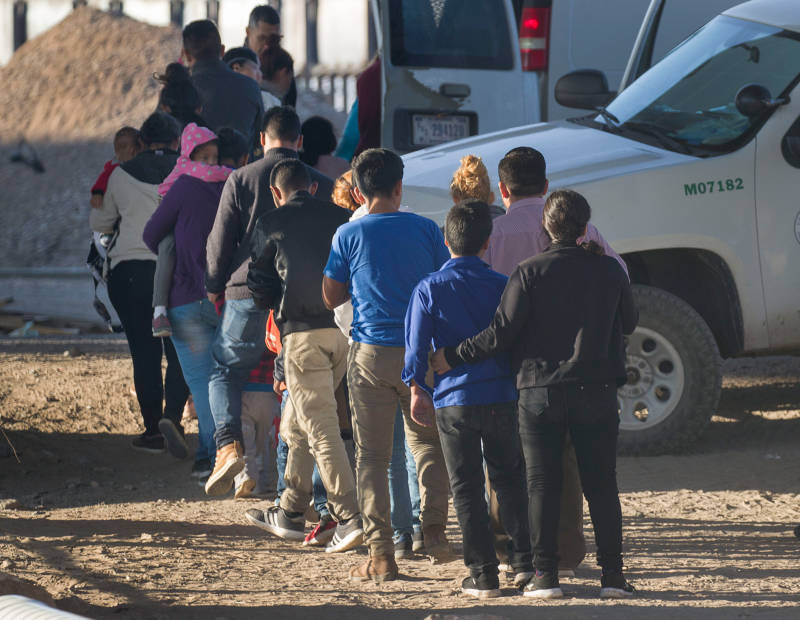Tigar said the plaintiff groups, which claimed significant costs under the new policy, had already established a “sufficient likelihood of irreparable harm.”
“The question now before the Court is whether those harms can be addressed by any relief short of nationwide injunction. The answer is that they cannot,” wrote Tigar in his ruling.
Tigar’s decision means migrants arriving anywhere along the southern border will now be eligible to apply for asylum as intended by Congress’ U.S. Refugee Act of 1980, said Michael Smith, who directs the refugee rights program at the East Bay Sanctuary Covenant in Berkeley, a plaintiff organization.
“The law says they are eligible to apply no matter how they got here,” said Smith. “So the law is clearly on our side. But this administration is going to fight against asylum on all fronts.”
The White House slammed Tigar's ruling in a statement.
"Immigration and border security policy cannot be run by any single district court judge who decides to issue a nationwide injunction. This ruling is a gift to human smugglers and traffickers and undermines the rule of law," read the statement from the Press Secretary.
The Trump administration is expected to request the 9th U.S. Circuit Court of Appeals to review Tigar’s decision. That court had limited a previous nationwide injunction Tigar ordered July 24 to temporarily block the so-called “third country rule” while it is challenged in court.
Last month, the appellate judges declined the federal government’s request to dissolve the ban completely, but they restricted it to the nine western states within the appeals court’s jurisdiction, reasoning the judge hadn’t shown enough evidence to support a nationwide halt. That meant the new asylum restrictions were applying to migrants who crossed the border into Texas and New Mexico, but not into California and Arizona.
The three judge panel at the appeals court also ruled that Tigar retained jurisdiction to “further develop the record” to support extending the suspension to the rest of the country. That opened the door for plaintiff organizations to ask Tiger to consider additional evidence and restore the nationwide injunction on the third country rule.
Tigar’s ruling Monday built a fuller case for the injunction. It comes as the Trump administration asked the U.S. Supreme Court last month to intervene and allow it to fully implement the third country rule.
